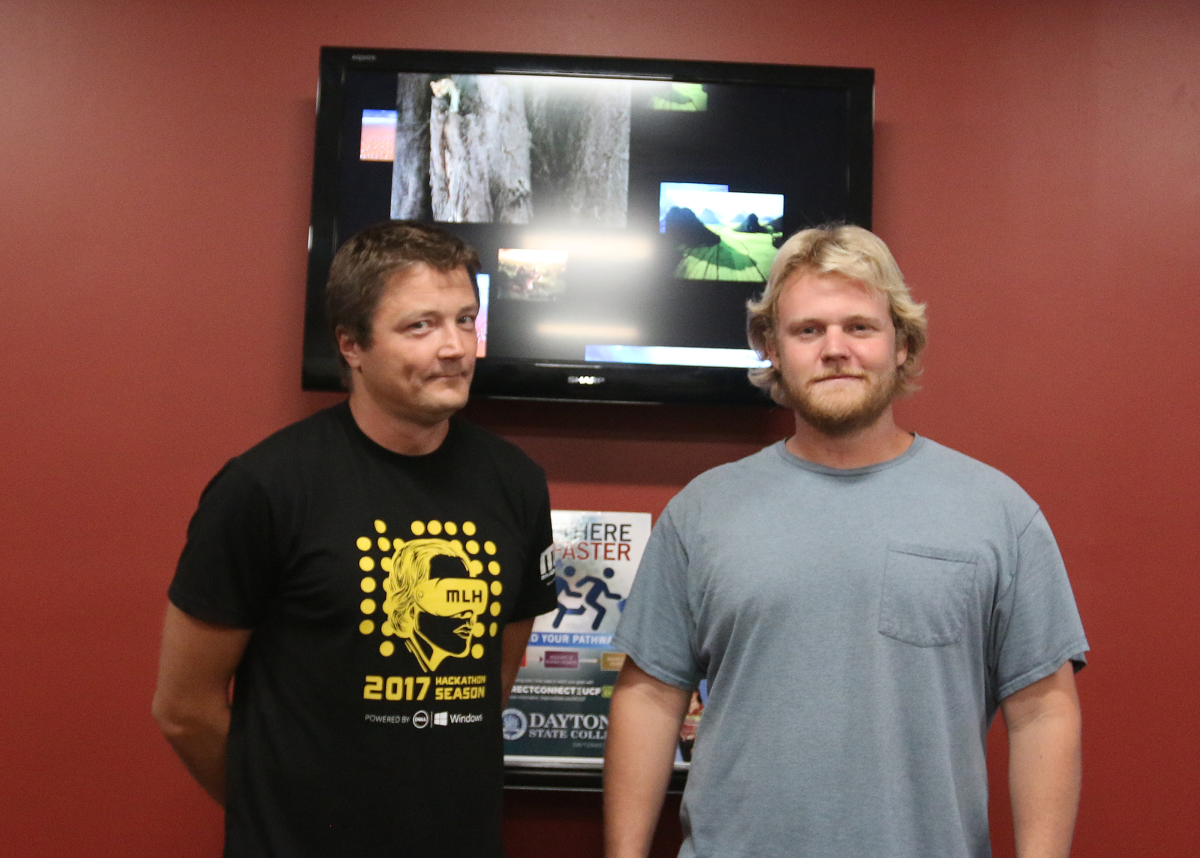DSC pair wins 2nd place at ERAU HackRiddle
“Public Puzzle” based on collaboration from anywhere
DAYTONA BEACH, Fla. (Nov. 11, 2016) - Two Daytona State College students, one who is an Army veteran, have high hopes
for an interactive digital puzzle they developed that took second place in the inaugural
HackRiddle 24-hour competition hosted by Embry-Riddle Aeronautical University.
Public Puzzle is the brainchild of Sheldon Pasciak (photo left) and Brenden Tackney, both pursuing Bachelor of Science in Information Technology degrees at DSC. It's a game that emphasizes collaboration over competition, where players anywhere in the world can log in and work together to solve the puzzle. Presently in prototype development, the game uses a webcam video feed as the image for a jigsaw-type puzzle that can be viewed on a TV screen, computer, tablet or any mobile device. Players simply use their devices to join the game and move pieces in real time to complete the puzzle.
"Anywhere you are, whether a group is in a room or in different cities or countries, you can build a public puzzle, bringing a community together into a common experience," said Pasciak, 46, a retired Army veteran attending DSC on a post-9/11 GI Bill.
Pasciak and Tackney developed the game in a short 24 hours, according to the HackRiddle competition rules. The second-place finish earned Pasciak a smart TV and Tackney, 23, a watch. The Oct. 15-16 marathon (or hackathon) gathering of professional and aspiring computer programmers and software engineers brought together more than 250 students from colleges and universities, along with industry leaders, judges and mentors.
But Pasciak and Tackney now have higher ambitions. Already, they have begun using
components of their Public Puzzle scripting to develop new games that they hope to
apply to educational settings. For example, Pasciak's Lost Words game offers a similar
collaborative experience. "It's a modern-style word game that everyone can play at
the same time," he said.
The two students also are collaborating with the college's math department to design
an interactive math-game prototype. Math professor Brianna Kurtz says the Hackriddle
winners are making a game for her statistics class where students can sign in from
any mobile device, log in, respond to questions and see how classmates are leaning
toward answer choices. Peer influence will be a factor. "The nice thing is that it's
web-based and accessible from anywhere . . . students can play if they're home or
off-site," she notes. It allows easy access for review, and is useful for both online
and in-class students.
The novice game designers expect to earn their degrees next spring. Tackney would
like to explore software development in the healthcare industry, while Pasciak hopes
to bring an entrepreneurial focus to his career, developing and marketing applications
and prototypes.
DSC School of Technology Chair Dr. Ron Eaglin lauded the two students for placing so well during HackRiddle. "They beat out a lot of big-time schools to do so well in this competition," he said. "It shows that our students can compete on a national level."
Pasciak credits his professors for his success. "I'm a product of this school," he said. "Everything that's in these games I've learned right here."
###


